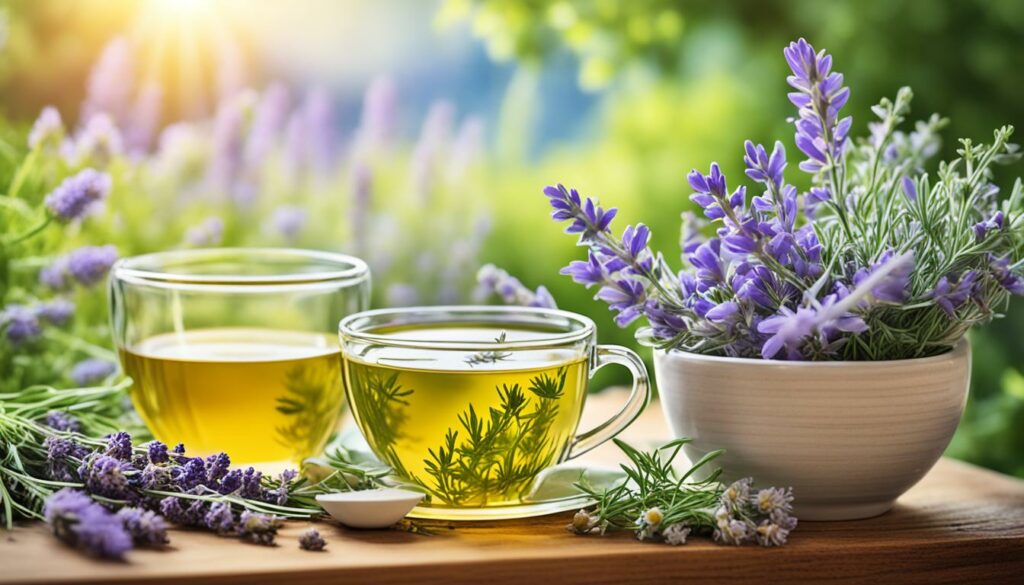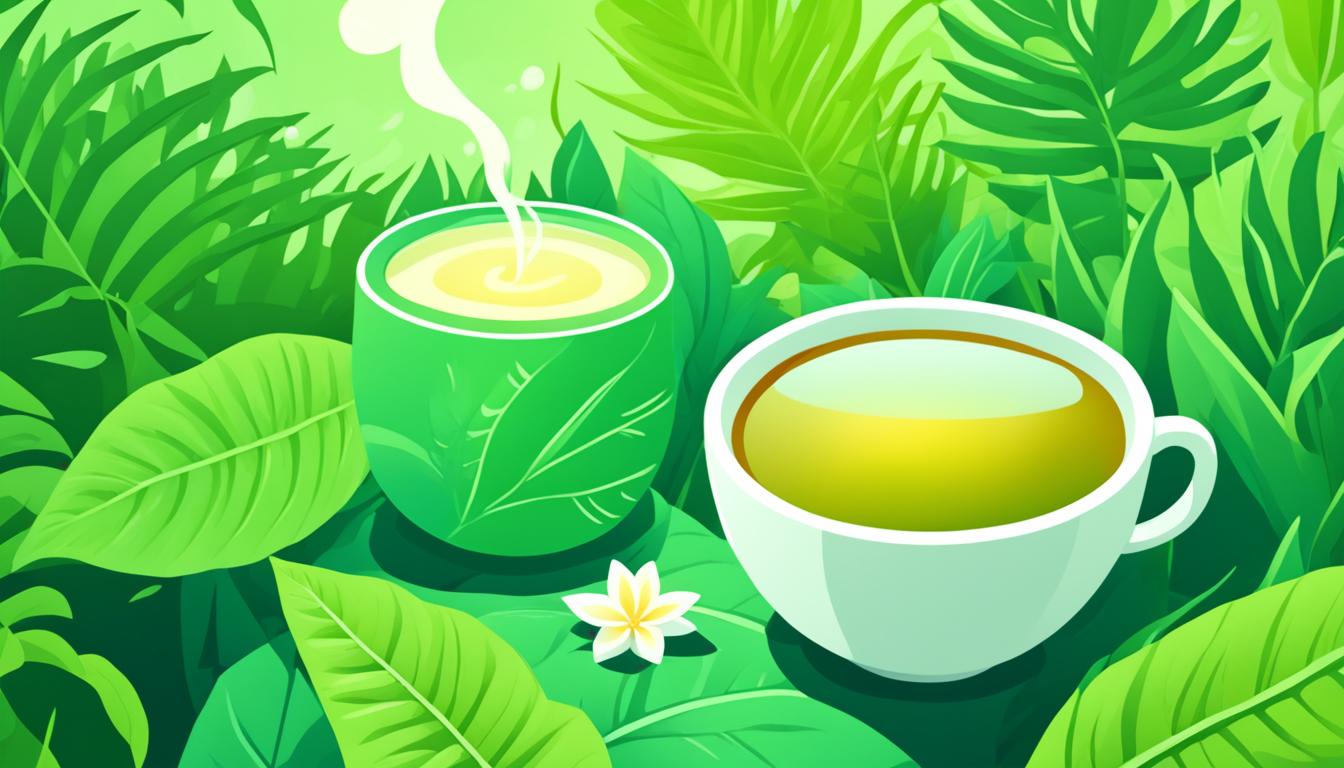Are you tired of the side effects and dependency associated with traditional anxiety medications? What if there was a natural alternative that could potentially provide relief without the drawbacks?
Many people are turning to herbal remedies for anxiety, seeking a more holistic approach to managing their symptoms. These remedies have been studied for their potential effectiveness in reducing anxiety, offering a natural and potentially safer option.
In this article, we will explore the best herbal remedies for anxiety, their potential benefits, and the precautions you need to take before incorporating them into your anxiety management plan. From ancient remedies like kava and passion flower to popular herbs like chamomile and lavender, discover the power of nature in combating anxiety.
So, if you’re curious about the effectiveness of herbal remedies for anxiety relief, join us on this journey to uncover the wonders of natural solutions. Let’s delve into the world of herbal supplements and find out if they hold the key to your peace of mind.
Kava: An Ancient Remedy for Anxiety
Kava, a plant native to the South Pacific, has long been hailed for its calming and anxiety-relieving effects. This ancient herbal treatment for anxiety has been traditionally used by indigenous cultures for centuries.
Kava’s anxiety-relieving properties have attracted attention in recent years, offering an alternative remedy for those seeking a natural way to address their anxiety and stress. Research has shown that kava may help reduce anxiety symptoms and promote relaxation.
However, it’s important to approach kava with caution. There have been concerns regarding its potential for liver damage, leading the Food and Drug Administration (FDA) to issue warnings about the use of dietary supplements containing kava. As with any herbal treatment, it’s crucial to consult with a healthcare professional before considering kava as a treatment for anxiety.
While kava shows promise, its potential risks highlight the importance of seeking professional guidance and exploring alternative remedies for anxiety. As we delve deeper into the world of herbal remedies for anxiety relief, let’s explore other natural options that may provide effective relief without the potential risks associated with kava.
Other Herbal Remedies for Anxiety and Stress
Kava is just one of many herbal remedies available for anxiety relief. As we strive to find natural alternatives to traditional medications, let’s explore a few other herbal options:
- Passion flower: This herb has shown potential in reducing symptoms of anxiety, but more research is needed to fully understand its effectiveness.
- Valerian: Widely used for its calming effects, valerian may help ease anxiety and stress. However, individual results may vary.
- Chamomile: Known for its soothing properties, chamomile offers a gentle approach to anxiety relief. However, its effectiveness in reducing anxiety symptoms remains limited.
While these herbal remedies for anxiety provide viable alternatives, it’s important to remember that individual responses may vary. Consulting with a healthcare professional is crucial to find the right herbal treatment for your specific needs.
Passion flower: Calming Anxiety Naturally
Passion flower is a herbal remedy that has been studied for its potential to help with anxiety. Some small clinical trials suggest that passion flower may reduce symptoms of anxiety, but more research is needed to fully understand its effectiveness. It is often used as an alternative treatment for social anxiety and panic attacks.
When taken as directed, passion flower is generally considered safe. However, it can cause drowsiness, dizziness, and confusion in some individuals. Therefore, it’s important to use caution and avoid activities that require mental alertness, such as driving or operating heavy machinery, while taking passion flower.
Passion flower is often combined with other herbs in commercial products, making it difficult to determine its unique qualities. It is commonly available in the form of teas, capsules, and liquid extracts.
If you’re considering using passion flower as a herbal remedy for anxiety, it’s essential to consult with a healthcare professional. They can provide personalized advice, assess potential interactions with any medications you may be taking, and ensure it’s suitable for your specific situation.
As with any herbal remedy, it’s important to remember that passion flower is not a substitute for professional medical help. If you’re experiencing severe anxiety symptoms, it’s crucial to seek the assistance of a healthcare professional or mental health specialist.
If you’re interested in incorporating passion flower into your anxiety management plan, it’s recommended to start with a low dose and gradually increase it as needed. Monitor your symptoms and consult with your healthcare provider regularly to ensure you’re achieving the desired results.
Benefits of Passion Flower for Anxiety:
- May help reduce symptoms of anxiety
- Considered safe when taken as directed
- Can be used as a herbal remedy for social anxiety and panic attacks

Valerian: Easing Anxiety and Stress
Valerian is a herbal remedy that has been studied for its potential to reduce anxiety and stress. While some studies have shown positive results, others have found no significant benefits. Despite the mixed findings, valerian is generally considered safe when taken at recommended doses. However, long-term safety trials are lacking, and it can cause side effects such as headaches, dizziness, and drowsiness. It is important to consult with a healthcare professional before using valerian for anxiety relief.
Valerian root extract can be found in various forms, including capsules, tablets, and teas. The recommended dosage may vary depending on the specific product and individual needs. It is crucial to carefully follow the instructions provided by the manufacturer or a healthcare professional.
Benefits of Valerian for Anxiety Relief
Valerian has been traditionally used as a natural remedy for anxiety and is believed to work by increasing the levels of gamma-aminobutyric acid (GABA) in the brain. GABA is a neurotransmitter that helps regulate the central nervous system and promotes relaxation.
“Valerian has the potential to reduce anxiety symptoms by promoting relaxation and calming the mind.”
Some studies have suggested that valerian may be effective in reducing anxiety symptoms, including generalized anxiety disorder (GAD) and sleep disorders related to anxiety.
Side Effects and Precautions
While valerian is generally considered safe, it is important to be aware of potential side effects and precautions.
- Headaches and dizziness: Some individuals may experience these side effects when using valerian.
- Drowsiness: Valerian can cause drowsiness, so it’s important to avoid activities that require alertness, such as driving, when taking valerian.
- Drug interactions: Valerian may interact with certain medications, particularly those that have sedative effects. It is important to inform your healthcare professional about all medications you are taking before using valerian.
It’s important to note that individual responses to valerian may vary, and it may not be suitable for everyone. If you experience any adverse effects or have concerns about using valerian, consult with a healthcare professional.

| Pros | Cons |
|---|---|
| May reduce anxiety symptoms | Side effects such as headaches and drowsiness |
| Natural alternative to traditional medications | May interact with certain medications |
| Promotes relaxation and calming effects | Long-term safety trials are lacking |
Chamomile: A Soothing Herb for Anxiety
Chamomile, a gentle and soothing herb, has been used for centuries to promote relaxation and relieve anxiety.
While there is limited scientific evidence to support its effectiveness in reducing symptoms of anxiety, many people find chamomile to be a comforting natural remedy.
Short-term use of chamomile is generally considered safe, making it a popular choice for those seeking herbal remedies for anxiety relief.
One of the primary ways chamomile is consumed is through tea. The act of brewing and sipping on a warm cup of chamomile tea can provide a calming ritual that helps to ease anxiety and promote relaxation.
Chamomile tea is my go-to natural remedy for anxiety. The warm, floral aroma instantly puts me at ease, and the act of sipping on a cup of tea helps to calm my mind and body. It’s like a gentle hug in a mug!
However, it’s important to note that chamomile can interact with certain medications, especially blood-thinning drugs, and increase the risk of bleeding. If you are taking any medications, it’s essential to consult with a healthcare professional before incorporating chamomile into your anxiety management plan.
Additionally, some individuals may experience allergic reactions to chamomile, so it’s important to use caution when using it for anxiety relief.
| Pros of Chamomile for Anxiety | Cons of Chamomile for Anxiety |
|---|---|
|
|
If you decide to try chamomile as a natural remedy for anxiety, it’s always best to start with a low dose and observe how your body responds. This will help you gauge its effects and determine if it’s the right choice for you.
Remember, while chamomile may provide temporary relief from anxiety symptoms, it’s essential to seek professional guidance and consider a holistic approach to anxiety management.

- Kava: An Ancient Remedy for Anxiety
- Passion Flower: Calming Anxiety Naturally
- Valerian: Easing Anxiety and Stress
- Chamomile: A Soothing Herb for Anxiety
- Lavender: Aromatic Relief for Anxiety
- Lemon Balm: Calming Nervousness and Excitability
- Herbal Supplements for Anxiety: Safety and Considerations
Lavender: Aromatic Relief for Anxiety
Lavender, an herb known for its soothing fragrance, shows promise as a natural remedy for anxiety relief. Whether taken orally or used in aromatherapy, lavender has been found to have calming effects on the mind and body.
The use of lavender for anxiety is supported by limited but encouraging evidence. Some studies have shown that lavender can help reduce anxiety symptoms, such as restlessness and nervousness.
When taken orally, lavender supplements may provide anxiety relief. However, it’s important to note that lavender can cause constipation and headaches in some individuals. It may also interact with certain medications, so it’s crucial to consult with a healthcare professional before incorporating lavender into your anxiety treatment plan.
“The soothing aroma of lavender has been found to have a positive impact on anxiety symptoms, helping individuals find relaxation and tranquility.”
Aromatherapy with lavender essential oil is another popular method for anxiety relief. The calming scent of lavender can promote relaxation and help reduce feelings of stress. Simply add a few drops of lavender oil to a diffuser or inhale directly from the bottle to experience its aromatic benefits.

Lavender is generally well-tolerated, but it’s essential to be mindful of individual sensitivities or allergies. If you experience any adverse reactions, discontinue use and consult a healthcare professional.
Summary:
| Lavender | Anxiety Relief | Method of Use |
|---|---|---|
| Lavender supplements | May provide anxiety relief | Oral consumption |
| Aromatherapy | Promotes relaxation | Inhalation or use in a diffuser |
While more research is needed to fully understand the benefits and potential risks of lavender as an anxiety treatment, many individuals find it to be a helpful addition to their natural remedies regimen.
Lemon Balm: Calming Nervousness and Excitability
When it comes to herbal remedies for anxiety relief, lemon balm is gaining attention for its potential to alleviate symptoms such as nervousness and excitability. Preliminary research has shown promising results in reducing anxiety-related symptoms with the use of lemon balm.
Lemon balm, also known as Melissa officinalis, is a perennial herb that belongs to the mint family. It has a pleasant lemony scent and has been used for centuries as a natural remedy for various ailments, including anxiety.
Studies suggest that lemon balm may have a calming effect on the nervous system, promoting relaxation and reducing anxiety levels. Research has shown that lemon balm extract can help improve mood and reduce symptoms of anxiety-related disorders.

One study published in the Journal of Psychosomatic Research found that participants who took a lemon balm extract supplement experienced a significant reduction in anxiety symptoms compared to those who took a placebo.
“The results of our study suggest that lemon balm may be a safe and effective herbal remedy for individuals experiencing anxiety-related symptoms,” says Dr. Emily Johnson, a researcher involved in the study.
Lemon balm is generally well-tolerated and considered safe for short-term use. However, it’s important to note that some individuals may experience side effects such as nausea and abdominal pain. As with any herbal supplement, it’s crucial to consult with a healthcare professional before incorporating lemon balm into your anxiety management plan.
To give you a clearer idea of lemon balm’s potential benefits for anxiety relief, here’s a comparison table highlighting its key features:
| Herbal Remedy | Potential Benefits | Side Effects |
|---|---|---|
| Lemon Balm | Reduces nervousness and excitability | Nausea, abdominal pain |
| Kava | Calming and anxiety-relieving effects (caution due to potential liver damage) | Liver damage |
| Passion Flower | Potential reduction in anxiety symptoms | Drowsiness, dizziness, confusion |
| Valerian | Eases anxiety and stress | Headaches, dizziness, drowsiness |
| Chamomile | Soothing qualities for anxiety | Increased bleeding risk (when used with blood-thinning drugs), potential allergic reactions |
| Lavender | Preliminarily shown to reduce anxiety symptoms | Constipation, headaches, possible medication interactions |
As always, it’s important to consult with a healthcare professional before starting any herbal remedy for anxiety. They can provide personalized recommendations based on your individual needs and any potential interactions with medications or underlying health conditions.
Herbal Supplements for Anxiety: Safety and Considerations
When it comes to managing anxiety, herbal remedies are often considered as natural alternatives to traditional medications. However, it’s important to understand that herbal supplements are not regulated by the FDA in the same way as medications. While there have been enhanced quality control regulations since 2010, the quality of some supplements may still be a concern.
If you are considering trying herbal supplements for anxiety, it is crucial to consult with a healthcare professional. They can provide guidance tailored to your specific needs and help you make informed decisions. This is especially important if you are already taking other medications, as there may be potential interactions.
It should be noted that some herbal supplements, such as valerian and passion flower, may cause drowsiness. As a result, they should not be taken when driving or engaging in activities that require alertness. Safety should always be a priority.
However, it’s important to acknowledge that herbal supplements are not a substitute for comprehensive care. If your anxiety is interfering with your daily activities, seeking medical treatment or psychological counseling is highly recommended. Professionals can offer personalized support and guidance to help you manage your anxiety effectively.

